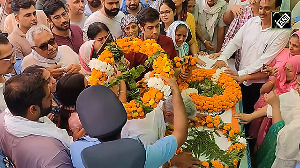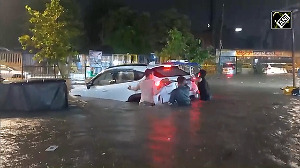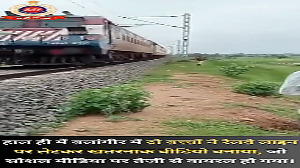'This verdict means that if there is presidential rule anywhere in any state of India, that state can be dismembered and from a state can be downgraded to a Union territory.'

Communist Party of India-Marxist leader Mohammed Yousuf Tarigami was detained by the government and his movements were restricted post the abrogation of Article 370 in Jammu and Kashmir on August 5, 2019.
The situation turned so bad for him that CPI-M General Secretary Sitaram Yechury had to file a habeas corpus petition in the Supreme Court asking him to be brought to court as he feared that Tarigami was either dead or illegally detained.
After much deliberations, the Supreme Court allowed Yechury to travel to Kashmir and meet Tarigami.
Tarigami has been very vocal against the abrogation of Article 370 and feels the Supreme Court judgment upholding the central government's decision will have serious consequences.
Tarigami spoke to Syed Firdaus Ashraf/Rediff.com after the Supreme Court ruling on Monday.
How do you react to the Supreme Court verdict upholding the abrogation of Article 370?
It is highly disturbing and in our view it is bound to have serious consequences for the federal structure of our Constitution.
This verdict says that there is no question of retaining any element of sovereignty after the Instrument of Accession was signed but the fact remains that signing of the instrument of accession was conditional.
The then J&K maharaja Hari Singh (in 1947), while signing the Instrument of Accession, had forwarded another letter specifying the speciality of the situation and asking for retention of internal security for the state.
The verdict declares that J&K is like any other state of the Union; it means that it is depriving us of some special features like Himachal Pradesh and other North Eastern states (have).
This verdict means that if there is presidential rule anywhere in any state of India, that state can be dismembered and from a state can be downgraded to a Union territory.
It is a big challenge for the basic structure of the Constitution of India as its federal character is under threat.
It is not injustice to the people of J&K, but supportive of policies which are aimed at disrupting and dismantling the very basic federal character of our polity.
It is almost five years since the scrapping of Article 370. How has life been different for the people of Jammu and Kashmir in this time?
Everything is different in J&K post the abrogation of Article 370.
The day this judgment is being delivered I am virtually under house arrest. This is the difference.
Even media people are not allowed to come and meet me.
Earlier, we had certain rights like holding assembly elections on time.
Now, four-and-a-half years have passed post the abrogation of Article 370 and our state has no assembly.
The delimitation process has been completed, they have upgraded the electoral rolls but there is still uncertainty on elections.
The prime minister and home minister time and again assured us on the floor of the Lok Sabha that statehood will be restored.
And even in today's judgment there is no specific time frame for the government to restore statehood.
My question to the rest of the country fellowmen would be, how will you feel when you are meted out this kind of treatment in your state?
I hope we all citizens of India realise together and restore the Constitutional rights of the people of J&K and the rest of the country.
The Supreme Court verdict is the final seal of approval on the abrogation of Article 370. It cannot be reversed now.
We know that once upon a time the Emergency was imposed and at that time it was the last word of Parliament too.
Nevertheless, the people of India asserted themselves and democracy was restored.
Whatever has happened to us, we hope democracy will be restored in J&K as promised by the founding fathers of the Indian Constitution. We look forward to better days for us and the country.
The main argument is that Article 370 created a separatist mindset in the people of Jammu and Kashmir and therefore it was essential to scrap it.
This argument is misleading people and is a distortion of historical facts.
When in 1947 there was no Indian army in Kashmir and raiders (from Pakistan) came to attack Kashmir, the maharaja of J&K (Hari Singh) left Kashmir and went to Jammu with his troops.
Who then resisted these raiders? It was the people of Kashmir who resisted the raiders.
Kashmiris then formed bonds with Indians over secular values and not on communal lines with Pakistan which was a Muslim State.
Kashmiris willingly opted for a secular India in 1947.
The maharaja of Kashmir joined India on October 26, 1947, and not on August 15, 1947, when India got independence.
Please try to understand this historical fact. Signing of accession to India was by a Hindu maharaja and not any Muslim leader.
When the raiders came in 1947, Kashmiri Muslims refused to side with them and instead fought against them.
With Article 370 gone, how difficult will it be for you to convince ordinary Kashmiris that what the Indian establishment is doing is good for them?
We have been fighting for the rights of people and we have been victims of violence from the other side (Pakistan). We will definitely go on and march ahead with the rest of the country for genuine democratic rights.
Has peace been restored since Article 370 was abrogated?
They are silencing and arresting people. They are prohibiting even social media activity by the Kashmiri people.
But terrorism cases have reduced post the abrogation, isn't it?
When Article 370 was eroded, the tendency of terrorism emerged in Kashmir. There was a time when there was no terrorism in Kashmir.
Why don't you see that period of Kashmir when there was no terrorism? Terrorism emerged in the late 1980s.
From 1947 to 1989 was a big period of peace in Kashmir.










